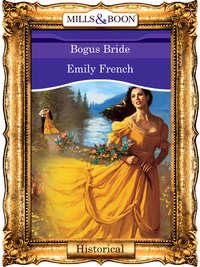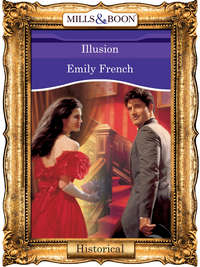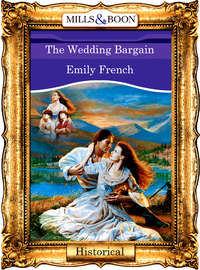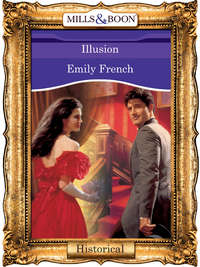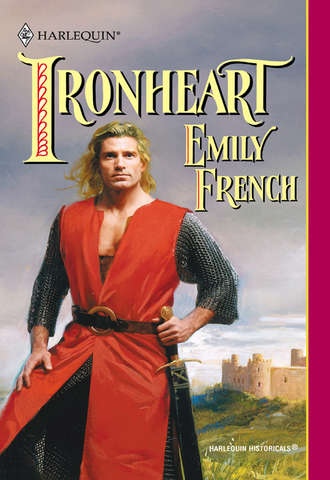
Полная версия
Ironheart
“It is not too late. If you run fast, you could catch them.”
He knew that. He was also not accustomed to being made light of. “My lord isn’t happy with things along the border. He wishes me to stay, be a shield-brother to his heir.”
“How will you win your spurs?” she asked with just the hint of a smile.
Leon did not rise to the bait. He was a squire, past childhood, and he had seen the lordlings come and go. He thought of Keith all bruised and bloody, crying foul, and the demands of his own stubborn honor. Then he thought of make-believe things, set in the future. Images of the girl-child, now a woman, a prisoner in the place where crows gather, where the woods grow strange and twisted. Himself, helmed and mounted, sword in hand overwhelming a dragon.
No, that was too exotic.
He rebuilt the image and tried to make it something real; the girl-woman up on the battlements, dark hair aflying in the wind, laughing and holding out her arms; himself, just walking into them, and not noticing the precipice.
No, that was too incredible.
The picture changed. The name of Caer Llion had been added to those famed few that were bywords to both friend and foe, whom men would follow into the jaws of death at the wave of an arm. Iron-helmed, he sat astride a huge destrier, sword held aloft and gleaming in the bright morning sun, thundering over the desert sands, leading a band of knights, an iron-clad avalanche of destruction.
“I haven’t got it all worked out yet, but one day I’ll be a knight. I have to. I must.” He used the blunt mode for conviction, for absolute duty—for oath swearing.
“You could run away and become a commoner if you wanted it enough. Father says the common women have more fun than the highborn.”
“He talks too much. Knights are shields against evil. They are the only hope for pig farmers and little girls—saints preserve their stubborn necks. Nobody else will take pity on them.”
“How proper. They will sing songs in your honor.” A small hand crept into his, the other touched his jaw with her thumb.
“Sounds good to me.”
She wound her tiny fingers through his hair. “Why not? You are brave and noble and strong. You will make a great knight.”
Leon’s nerves jumped, his pulse fluttered and a flush came over his skin, confusing all his thinking. She was curious. She thought he was very brave. It puzzled rather than delighted him, but it was very hard to go on being mad at someone who really believed that. He searched his mind for something clever to say in response. When nothing came to him, he settled for attempting to endow his silence with a knowing air.
She smiled prettily. Her breath was in his face, warm as a spring sunbeam. “Will you marry me when I grow up?”
Leon couldn’t help feeling embarrassed. The girl was so foolish she was a woman already! He was not certain what he was supposed to say, but it wouldn’t hurt to put her straight.
“You must marry a man with estates and title.”
“I could never marry a man I didn’t love!” she said with all the blithe confidence of a four-year-old girl.
“One day a knight will come and steal your heart.” He swung her down to the parapet.
“Will you be my own special knight?” she asked straightway.
“Of course,” he said grandly, flourishing a salute.
She blinked rapidly. Then she glanced upward, a piercing, anxious look. “For ever and ever?”
Leon smiled his sudden smile. His voice changed, deepened. “Henceforth, I am your forever knight.” Bowing low he kissed her hand.
She slid her hand free and detached a knot of ribbon from her night rail and held it out to him. “Then I will wait, ’n’ when you are all grown up, you shall come back and marry me.”
“Just like that?”
She nodded her head emphatically.
Leon took the token and tousled her hair. If she were not careful, this rare blossom would grow into a thorn bush! He glanced at the dawn sky, pretending disinterest.
“All right,” he conceded.
She planted her hands on her hips. There was witchcraft in her eyes. “Will you swear on it?”
Leon ground his teeth. Aggravating girl! Really, she tried his patience to distraction! He inclined his head and turned away. “I vow by sun and moon, earth and water, fire and air. Does that satisfy you?” he said to the free air beyond the walls.
Behind him he heard a whisper of slippers. His back muscles went rigid.
“Nurse!” She ran off gaily, muddy hands outstretched. “Oh, Nurse, I could see far and far. I saw the prince ride out!”
Leon looked around. The waiting woman lowered tight-clenched hands and spread them, and hugged the draggled child to her. In a deliberate, careful tone she told the child, “You must never climb up there alone, you know.”
“Oh, I didn’t. My own true knight was with me.”
“This running about has got to stop, my girl.”
“But why?” The light voice lilted.
The nurse brushed her off mercilessly, then wrenched her away, scolding loudly, “It’s unnatural to want to be adventuring out of doors.”
“But, Nurse, I have found my knight—only he’s not a knight yet—and he’s got hair like gold!”
“One day a fine man with golden hair will ask for your hand, then marry you, get you with strong children, a round half dozen. But until then, little mistress, you’d best be learning the ways of a lady.”
When she reached the doorway, the girl turned. “Until we meet again, may every road be smooth to your feet,” she called in her bell-chime voice, the traditional Celtic farewell.
“And may you be safe from every harm,” Leon managed to reply, with more feeling than the customary response usually carried. He had forgotten to ask who her father was. Not that he would ever see her again. The FitzWarren entourage was returning to Whittington on the morrow.
Unable to stop himself, he reached out a hand, wanting to ask her name. She did look at him, a pale, distracted glance, but the nurse waved him off when he’d have followed her.
He closed his eyes, just for a heartbeat. When he opened them, they had been swallowed up in the darkness.
Chapter One
Northern Marches, Wales, 1204
“The priest is here. All we lack is the groom.” Brenna heard the words as if from a great distance. They hung in the air above her head like flaming arrows, separate and solid, one after another, shooting from some unseen bow…
“He will come.”
“I fear the worst.” The voice drew nearer, a high sweet voice like a bird’s. ’Twas her great-aunt Alice, all aflutter. “If no evil has befallen him, surely he would have arrived by now.”
A creeping chill went down Brenna’s back. The wind whipped her hair and her gown. But her eyes never blinked, her face never flinched, though her heart was hammering against her ribs. She said nothing, only stared fixedly over the merlon, gazing beyond the southward sweep of the battlements.
The walls fell sheer below her, stone set on stone, castle and crag set high above the green valley, field and forest rolling into the mountain bastions in the distance. In the world below, children shouted, a stallion screamed and a tuneless voice bawled a snatch from a drinking song.
The wind sighed upon the stones.
Marry. Marriage. Husband. Wife. Bed.
Children.
A great churning dread welled in her heart. She knew nothing beyond the valley and its inhabitants and the limited knowledge and experience acquired as a healer. The secret tales told by the village women baffled her and yet beckoned with promises more provocative and lurid than the vague tutoring her aunts had imparted on the duties of a wife. She was not certain now whether she wholly welcomed the idea of marriage, of a husband, but it was still, all things considered, a good way to preserve the peace on the border.
He had to come! Her anxious glance went back to the valley. The priest had come trailing in, complaining of heavy rain, and confessing that he had mistaken an intersection of roads and ridden an hour or more along a road before discovering his error. She hoped that her groom was late for as silly a reason, but it was making her increasingly concerned. The only other alternatives were either that he had met foul play or that he had changed his mind.
Why? was the next obvious question, but she only frowned for even thinking of it. Come the Sabbath she would be wed, and she had never even met her betrothed! The feeling of doubt and confusion at the news of her future husband’s impending arrival came laced with a dread that she couldn’t shake, a dread made up of fear for what he might have learned…what he might have already reasoned…
She was being foolish. Don’t think maybe he’ll come today and maybe he won’t, she told herself. Don’t believe that it’s not worth keeping a lookout.
He is coming. She knew it. Yet the shadow of the gray stone walls joined the shadow of the tower and grew long across the courtyard. Not an hour of daylight left.
“Brenna!” Slowly she became aware of a plucking at her sleeve. Her aunt was talking again. What was she saying? “What of the wedding? The feast is being prepared even now.”
Brenna swallowed hard and as close to invisibly as she could. “I am not ready to abandon all hope.”
“Should the preparations be halted?”
“No!” Brenna’s fingers clutched the unyielding stone. Her breath left her slowly. She had not known that she was holding it. “No. Grandfather is the most indulgent of guardians, but I fear his patience is exhausted, and to halt all the preparations now would cripple his purse.”
“What will you do?”
Brenna wrinkled her nose. Since childhood, she had dreamed of her perfect knight. She had built her own romance about him as she grew older. Her experience as a healer had given her a knowledge of the male anatomy, so she could even visualize in vivid detail the fascinating play of muscles across his shoulders, the rippling sinews along his broad ribs, and the taut, flat belly with its tracing of hair that she knew led downward to the manly part of him. It was at this point that her mind games always stopped for she could not totally catch the import of what lay beyond. When she thought of the future, it was of some romantic meeting with her hero.
But it had not come true…
How ridiculous, to waste time on such thoughts. Her knight was but a dream, a memory. It was no use indulging in romantic fantasies, for marriage was not a romantic business. Marriage was a shackle and no pleasure, however you looked at it. Romance belonged to the troubadours, an elaborate conceit made of flowery language, poetry and lute-twanging.
“I am forsworn, surely and irrevocably. I am betrothed to Aubrey of Leeds.”
“Who has not come!”
“Have you ever asked yourself why I agreed to marry a man I have never met?”
“You don’t really expect me to answer that?” her aunt replied.
Brenna shook her head.
“When I was as old as you, I had been two years a wife and nigh three seasons a mother.”
“And you didn’t mind?”
“Aye, but I had not so doting a father, nor so lax a grandfather. With the coming of my woman’s courses, I had perforce to put on a gown and bind up my hair and accept the husband my family had found for me. From all accounts, Aubrey is an admirable fellow…and…according to my brother, who is your guardian, I remind you, your marriage will prevent persistent suitors raiding the marches to gain an advantage over each other.”
The way Lady Alice spoke told Brenna her great-aunt considered marriage but a trifle. She shuddered. Her entire life had been spent following the dictates of authority. She was naught but a female and consequently all decisions were made for her and around her. It was unfair.
And it hurt.
It was all so terribly matter-of-fact. Chattel of one man to be chattel of another. No choice. No argument. It was as the man dictated, as the man ordered. She, the woman, meant nothing to any of them. As her grandfather, Grandy wanted a great-grandson. As Sir Edmund, he also wanted someone willing and able to keep the border barons from each other’s throats, so he could spend his time plotting the stars. Aubrey was only going to marry her because of the political advantage a stronghold such as Dinas Bran would bring. The aunts wanted security in their old age, and the villagers were pleased their healer would not be leaving them.
With diminished hope, she scanned the valley once more. The road was clear enough even in the gloom. Nothing.
She drew a long sigh. She was dallying, and the day was running on. A storm was brewing. The clouds were darkening and thickening. She had to work fast. There was much to do before supper. So she controlled herself as well as she could, and twisted ’round to face her great-aunt.
“What profits me to object? I am constrained and cannot stray from Grandy’s decree.”
“How long can we wait?”
“Wait for what? Grandy sees his lordship of the northern marches foundering. If the knight does not fulfil his promise by the morrow, then Grandy will find another willing to wed me.”
“I can understand how sweet freedom is, Brenna, but you must wed sometime. My brother would not insist on your marrying someone who displeases you, and you must have a life of your own.”
“I have a life…in my thoughts, and in my dreams. That will have to suffice.”
“You were never so credulous before.”
“The bride-price has been paid. The wedding feast is prepared. The priest is here. Most surely, there will be a marriage.”
Follow the road, the leper said.
Trouble was, the road appeared and disappeared by turns in the uneven light of the forest. At a lichen-mottled outcrop of rock, Leon reined in and dismounted. Deso tugged at the rein, impatient, and leaves stirred and rustled under his massive hooves.
Leon walked, leading his big creamy-pale destrier along the brown, wet depths of the drifting leaves, following the ancient stonework until the trees grew so close he could no longer find the next white stone to guide him. It was like a ghost road; the only other soul he’d seen in five hours was a leper.
Shadows enveloped him. Even on a sunny day the massive trees in this region were dense enough to filter light, but this had not been a sunny day. The last hours plodding through rainy mist and mud had scarcely discomforted him, for he was already beyond weariness, his flesh chilled by the wind.
I am lost… he thought. He wished he could lie down and rest. His head throbbed, his mouth was dry and his throat burned. He kept walking, light-headed with hunger. He had given the last of his bread to the leper squatting beside an empty alms bowl at the crossroads in exchange for directions to Valle Crucis.
That had been midmorning. Now it was near nightfall. Wrong way, something said to him. He was certain of it. This was not at all where he’d intended to go. He looked back. Already the trees had closed in upon the path. He could see no more than a few lengths behind, a few lengths ahead.
I have done a foolish thing, he thought, wishing he and his escort had never been parted; and then he shook off the feeling as too much caution. Within a day of his meeting with the king’s chamberlain, he’d taken his leave, gathered his men and headed for Wales, though the frosts were still too bitter for any greening of the land.
Six weeks later, appalling storm rains swelled the rivers and brooks, drowned the upland bogs and rendered the hillsides treacherous. The company had wrapped their weapons in oiled leather and themselves in heavy hooded cloaks and pressed on without pausing. Wagons bogged in roads turned to quagmires, sumpter mules sank to their haunches in mud and tempers became frayed.
Lodgings had been small and scant. His men grumbled under their breaths, laying wagers on whether Ironheart would command them to harden themselves yet further by camping in the open. It was cruelly hard, but then had come the worst blow of all. Wet fever struck down half his company. Rather than delay further, and only after much argument with his sergeant, he’d left his men at Crewe under the command of Rodney of Leyburn, while he continued on with only his squire, Thomas, to attend him.
It had seemed a good idea at the time. Now, though, he wondered if he’d been too rash. He desperately needed food and shelter for the night, for by now it was painfully obvious that the leper had not had the faintest notion of Valle Crucis.
A chill convulsed him. His brain was whirling with half-formed thoughts. Was this a fool’s mission, riding for Wales? It was a long way to go on a hunch.
Still, he had a duty. He would deliver the relic of the Holy Cross entrusted to him by the monks at Cluny, a perfectly natural reason to visit the abbey—and to discover whether the informant’s reports were true or false. After that, he was not certain. He was tired of political intrigue. Mayhap he could resign as the king’s judiciar and so buy some time, a chance to decide what he should do next.
He could go to Dinas Bran. His heart slammed against his ribs. It was not sane. It was, if one was a fool. And no one could accuse him of that. Intemperate, perhaps. But not a fool.
Or he could take another fork in the road. He could go to Whittington, claim it as was his legal right. Then perhaps he could move forward and not constantly think back toward the lost things he remembered. Making peace with that, he could perhaps begin to see things as vividly ahead of him, instead of the gray space that seemed to occupy all his future…
“I think we’re a long way from nowhere, don’t you?” The destrier twitched its ears at the sound of his voice, and a rising wind whispered assent through the wet branches.
The road bent around an out-thrust knee of rock. It was the solid ground ahead that beckoned him, and his feet were very glad to feel that solidity under them as he left the forest behind. He was onto a well-worn path. He glanced up the slope, saw stones and vines through the trees, saw stone walls and turrets, saw…
A truly wondrous sight.
Dinas Bran!
The castle enjoyed a vantage over all the valley and perhaps the plains and hills beyond, to all the distance a clear day would afford. Like a great hog’s back on top of the hill it stood, a brooding stone pile with thick gnarled walls and an air of neglect. Not as fine as some, but a sturdy, well-built fortification for all that, with narrow openings in it here and there through which it might be defended.
A bell began to toll from the walls, waking echoes across the hills. Following these echoes other sounds began to reverberate from within the keep itself: dogs barking, the calling of voices one to the other, the jingling of horses. Birds rose from the tower, wheeled and drove, chattering, black specks against the lowering sky. Ravens, which gave rise to all manner of lore and legend.
Deso’s nose met his shoulders and shoved. Leon gathered the reins, which he had let go slack, and remounted. “Hear that, Deso? Do they wait to pick our bones?”
A dry, distant crack of thunder cut through the gloominess of his thoughts. Ravens were not the only things threatening, it seemed. There was a bank of dark clouds piling up in the north; the kind of clouds that were laden with rain and indiscriminate in their dropping of it. A flicker of lightning ran along the edges of their contours, making them for an instant as sharp and clear as outlines cut from blackened copper.
Leon urged his mount up the steep incline, black shadow against the sullen light, for the motte and the stronghold above, a swift striding that lost not a pace. The tearing thunder-crash repeated itself a few seconds later, and just a little longer than before. The stallion snorted and shied, setting the equipment jingling and creaking. He put them to a quicker pace, and they went pell-mell up a chancy turn, over ground buried in leaves, a stretching and gathering of sinew, a flutter of mane, a streak of mire, as if that could make them safe, get them behind gates and walls.
A vast somber sound boomed out, brazen and measured, the rattle and groan of chains as the portcullis was lowered. It was not an auspicious hour to arrive unheralded and alone. Gates were secured at sundown and reopened with the dawn. Many a traveler who misjudged the timing of his arrival spent an uncomfortable night outside the walls at the mercy of robbers and worse.
“The lower gate should be open still.”
The stallion shifted its weight, bowed its head, and made a quiet, disturbed sound. No doubt Deso was thinking of a warm stable, a good rubdown and some sweet oats. He himself wished desperately for a cup of ale, for a place to lie down and rest. But first he had to discover whether the postern gate remained open. He would know soon enough.
The road bent to follow a curve in the curtain wall where standing stones made an aisle leading to the gate. Here, by the towering arch of stone, a small table had been set up, in front of which stood a motley-dressed collection of beggars.
With a certain disquiet, he noted there was no watch on duty. Doubtless they kept a burly fellow or two on hand to deal with possible emergencies, but there ought to be guards posted in a hold as large this and with constant threat along the border.
Leon slid from the saddle. The stallion stood braced, head high, eyes and nostrils wide. Leon looped the reins and gave the beast a pat on the neck. It shuddered once and was still. He looked about, taking nothing for granted. With a soldier’s practiced eye, he searched for irregularities.
Some distance away, four churls huddled together, talking in low voices and casting uneasy glances around. Shadows lurked and flickered about them. His brows drew hard together. No doubt he was imagining things, but he gained the impression that these ruffians were plotting some villainy. The idea intrigued him, and his spirit lightened at the prospect of a bit of action.
There was the sound of some commotion coming from the vicinity of the courtyard. A woman hurried through the postern gate. She looked about her, letting her glance rest briefly on the beggars. Despite the plain cut and drab color of her gown, he knew she was no peasant wench or waiting woman.
“Tudur?” Her voice was low and musical, with a distinctive husky tone. There was something about it that made him want to hear it again. What folly! He laughed out loud, and surprised himself for it was not a usual thing for him. The woman must have heard him because she swung around and stared at him so intently that he felt both rude and careless. Her eyes held him where he was.
Leon felt his heart skipping. He wished he had come with the clarion of trumpets, the rattle of armor and the gleam of sword instead of by the back door and in the company of beggars. He wanted to leap back onto Deso and race away. He laughed again. Why he thought such foolishness was beyond him.
A tall boy, almost as thin and angular as a spider, came clumping out of the postern with a wooden pail that sloshed with liquid. A flutter of murmurs rippled through the crowd. The woman watched while the boy set the pail on the table, then turned her gaze back to Leon, but her face was in shadow, her features hidden. A swirl of skirts and she withdrew.
The four ragged fellows inched their way toward the open doorway, their shadows following them like cringing dogs. There was a pause in voices. A murmur. A tensing of the air. A deep voice. A sudden exclamation.
A small shadow thrust forward. “Get away from there!”
“Says who?” asked a hoarse, harsh voice.
“Guards!” The sharp quick shout came from the boy Tudur. A hairy hand wrenched the boy’s head to one side.
Abruptly Leon became every inch the soldier. His heart sped up and his hand reached for his sword hilt. Fingers clenched and unclenched on empty air. He had let Deso carry his sword, which he had stowed behind the saddle, though he carried a dagger in his belt. Beneath his brown wool cloak and leather tunic, he wore no mail, not even a padded gambeson, naught but a linen shirt.


